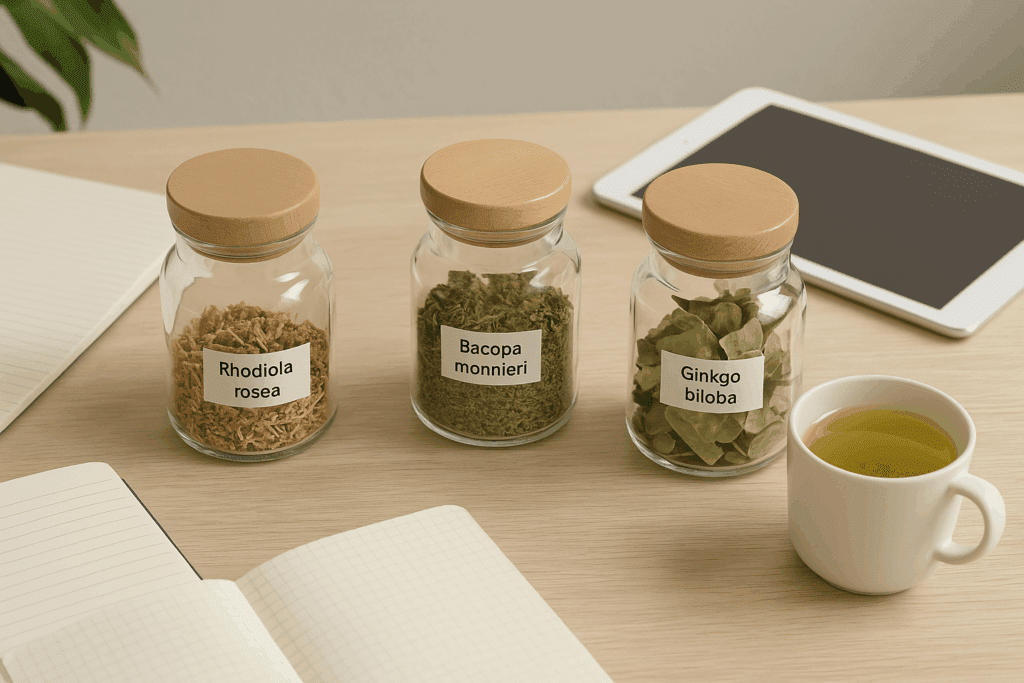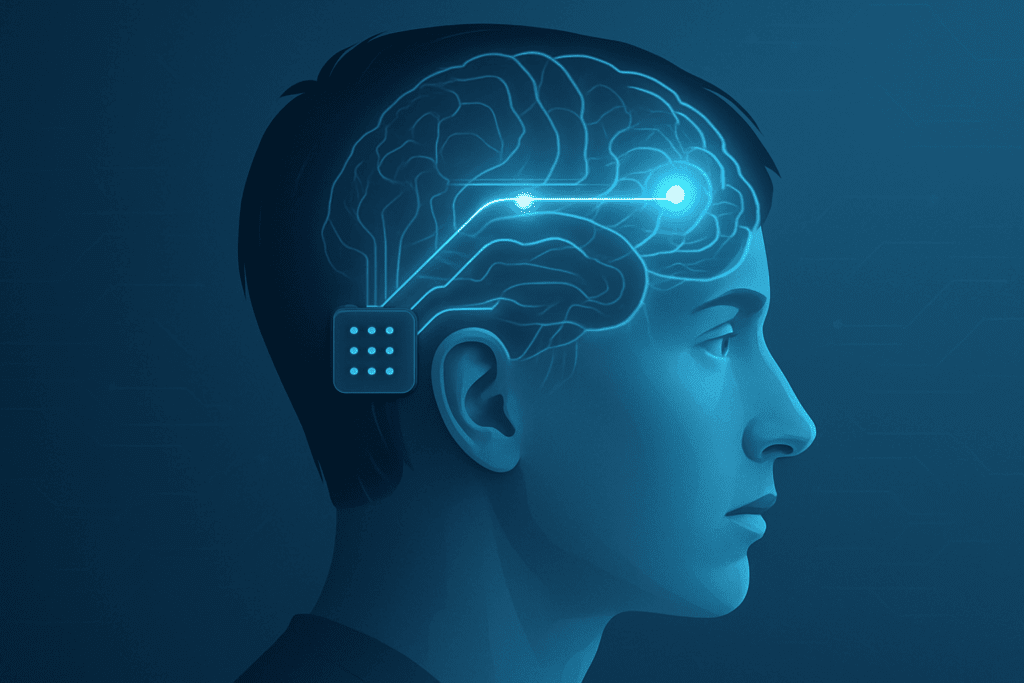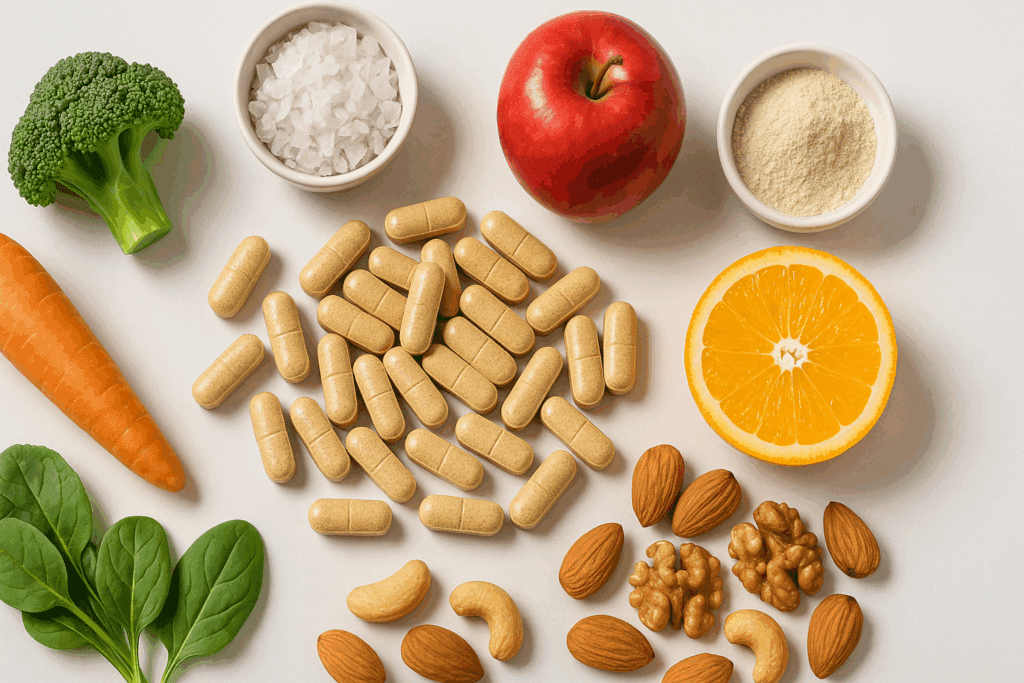In the realm of attention-deficit/hyperactivity disorder (ADHD), the search for safe, effective, and natural solutions continues to captivate researchers, clinicians, and health-conscious individuals alike. With growing skepticism around long-term pharmaceutical use, especially among parents of children with ADHD and adults concerned about stimulant dependency, the spotlight has shifted toward botanical interventions. This shift is not merely a trend but a reflection of the global movement toward holistic, evidence-informed care. For readers seeking both scientific grounding and real-world application, the exploration of herbs for ADHD offers promising insights into how plant-based medicine may support cognitive focus, memory retention, and emotional balance.

This article delves into the latest peer-reviewed findings, traditional uses, and clinical evidence supporting natural remedies for ADHD. From adaptogens like Rhodiola rosea to the increasingly studied Bacopa monnieri, the conversation around the best herb for ADHD has evolved into a robust field of inquiry. In parallel, developments in supportive technologies—such as memory patch medication and patches for dementia—have added nuance to the discussion, offering integrative options for individuals seeking non-invasive, cognition-enhancing tools. This intersection between herbal therapies and neurocognitive aids underscores the importance of a multifaceted, personalized approach to managing ADHD and related cognitive disorders.

Frequently Asked Questions: Best Herb for ADHD and Brain Health Support
1. Can multivitamins play a role in managing ADHD symptoms naturally?
Yes, multivitamins can offer support for individuals with ADHD, especially when dietary gaps affect neurotransmitter balance. While not a replacement for herbal therapies or prescription treatments, a multivitamin for brain function may help regulate mood, reduce mental fatigue, and improve focus when paired with an herb-based regimen. Some studies suggest that micronutrient deficiencies, such as low levels of B6, magnesium, and zinc, may exacerbate attention and behavioral issues. The new multivitamin study trends indicate a growing interest in combining botanical supplements with memory vitamins for older adults, which is especially relevant for ADHD patients entering middle or later adulthood. Although not conclusive, what we know about multivitamins and memory offers a compelling reason to consider them as part of a broader cognitive support strategy.
2. How do multivitamins compare to memory patches for dementia in cognitive enhancement?
Multivitamins and memory patches for dementia both aim to preserve or enhance cognitive performance, but they work through different mechanisms. A memory patch medication typically delivers ingredients transdermally for continuous absorption, whereas multivitamins are ingested and absorbed through the digestive system. In clinical contexts, multivitamin dementia study data suggests that routine supplementation may help slow cognitive decline in certain populations. However, the use of patches for memory loss provides an alternative route, particularly for those with swallowing difficulties or inconsistent pill-taking habits. While both approaches have merit, combining a multivitamin for dementia with a memory patch could potentially yield synergistic effects, especially in early stages of memory loss.

3. Are there age-specific benefits to taking memory vitamins for elderly individuals with ADHD?
Although ADHD is often associated with childhood, many older adults continue to experience attention deficits and memory issues. For this demographic, memory vitamins for elderly patients can complement herbal protocols aimed at focus enhancement. Some data from the multivitamin and memory loss study shows a correlation between improved recall and regular use of targeted vitamin supplements. The best memory vitamins for elderly people tend to include B-complex vitamins, omega-3s, and antioxidants, all of which support neuroplasticity and vascular health. As people age, these nutrients may be even more critical, given the overlap in symptoms between ADHD and early cognitive decline.
4. What does the centrum silver study suggest about multivitamins and memory retention?
The centrum silver memory study is one of the more well-known trials examining how daily multivitamin use might influence memory in older adults. According to the findings, individuals who took Centrum Silver consistently experienced modest improvements in memory and cognitive processing. This is relevant for anyone considering vitamin supplements dementia-related support, especially those with ADHD who may also be at risk of age-related decline. While the centrum study did not focus solely on ADHD, its implications for memory vitamins for seniors are notable. It reinforces the view that multivitamins may slow memory loss when taken consistently and combined with lifestyle measures like brain training and dietary improvements.
5. Should seniors take a multivitamin even if they follow a healthy diet?
Even with a balanced diet, seniors may benefit from taking a multivitamin for dementia or general cognitive support. Aging bodies often absorb nutrients less efficiently, and chronic conditions or medications can further impair nutrient uptake. The daily vitamin for memory loss approach serves as a preventive measure, ensuring that micronutrient levels remain adequate for brain and body function. Studies under the umbrella of the multivitamin memory study category highlight this preventative logic, especially among seniors who are cognitively active but at risk. This suggests that multivitamins memory support may extend beyond correction and into the realm of long-term cognitive preservation.

6. What do emerging studies say about multivitamins and memory loss in younger adults with ADHD?
While most vitamin supplements dementia research focuses on older adults, newer trials are beginning to investigate the relevance for younger populations. Among these, a multivitamin for brain function may assist in reducing brain fog and improving attention span, especially in adults with ADHD balancing careers and family life. The findings of recent multivitamin dementia study efforts underscore how oxidative stress, inflammation, and poor mitochondrial health may play roles in both memory loss and attention difficulties across the lifespan. These emerging perspectives encourage a more proactive approach, where vitamins and dementia are addressed together in prevention models. The link between multivitamins and memory loss is no longer limited to aging; it now has implications for neurodiverse adults navigating cognitive challenges earlier in life.
7. Can multivitamins be used alongside memory patch medication in dementia patients?
Combining multivitamins and memory patch medication may offer enhanced support for dementia patients, particularly in multi-modal care settings. While memory patches for dementia deliver consistent therapeutic compounds, multivitamin for dementia patients adds systemic support for brain and nerve health. A key advantage is that memory patch medication targets localized neural regions, while multivitamins for memory support the broader metabolic and vascular systems. A well-rounded regimen can incorporate both, as shown in case studies from vitamin supplements dementia protocols in integrated care clinics. Patients and caregivers should work with healthcare professionals to tailor dosages and avoid possible nutrient-drug interactions.
8. How do multivitamins impact neuroplasticity and long-term memory formation?
Neuroplasticity—the brain’s ability to adapt and form new neural pathways—relies heavily on adequate nutritional support. A multivitamin for brain function typically includes essential cofactors for neurotransmitter synthesis and myelin sheath repair, both of which are critical for sustained learning and memory. Evidence from multivitamin and memory loss study reviews indicates that long-term multivitamin use correlates with better performance on cognitive flexibility tasks. For individuals experiencing the early stages of memory decline or executive dysfunction, memory vitamins for older adults may help delay progression. These insights suggest that multivitamins may slow memory loss not just by boosting recall but by preserving the architecture of the brain itself.
9. Are there any risks associated with long-term use of multivitamins for memory enhancement?
Generally, multivitamins are considered safe when taken as directed, but excessive intake can lead to imbalances or toxicity, particularly with fat-soluble vitamins like A, D, E, and K. For memory vitamins for seniors, formulation matters greatly—choosing a product tailored to age-specific needs is essential. The centrum silver memory study and other research trials emphasize the importance of proper dosing and avoiding overlap with fortified foods. When considering vitamin supplements dementia patients might use, monitoring for potential contraindications with prescription drugs is important. The goal should be strategic supplementation based on real need rather than excessive intake driven by marketing or anecdotal claims.
10. What trends are emerging in multivitamin development for cognitive and behavioral conditions?
As the relationship between nutrition and brain health becomes clearer, companies are increasingly designing multivitamin for dementia patients and ADHD adults with targeted nootropic ingredients. The best memory vitamins for elderly individuals are now being formulated with adaptogens, amino acids, and bioavailable B-complex vitamins. Moreover, the latest multivitamin dementia study publications are focusing on personalized supplementation, taking into account genetic predispositions and gut microbiome profiles. With this growing body of data, what we know about multivitamins and memory is expanding to include precision medicine principles. These innovations hold promise not just for slowing memory loss, but for actively enhancing resilience and adaptability in both aging and neurodivergent brains.

As we explore the world of herbal ADHD remedies, this article will evaluate the pharmacological actions, safety profiles, and neurobiological mechanisms that make certain herbs uniquely suited for enhancing focus and memory. We will also contextualize these findings within broader conversations on dementia and cognitive decline, considering how innovations like memory patches for dementia and patches for memory loss may complement or enhance the effectiveness of herbal interventions. By the end of this article, readers will not only gain insight into the best herb for ADHD but will also understand how natural solutions and modern science can work together to improve attention, clarity, and overall brain health.
Was this article helpful? Don’t let it stop with you. Share it right now with someone who needs to see it—whether it’s a friend, a colleague, or your whole network. And if staying ahead on this topic matters to you, subscribe to this publication for the most up-to-date information. You’ll get the latest insights delivered straight to you—no searching, no missing out.


